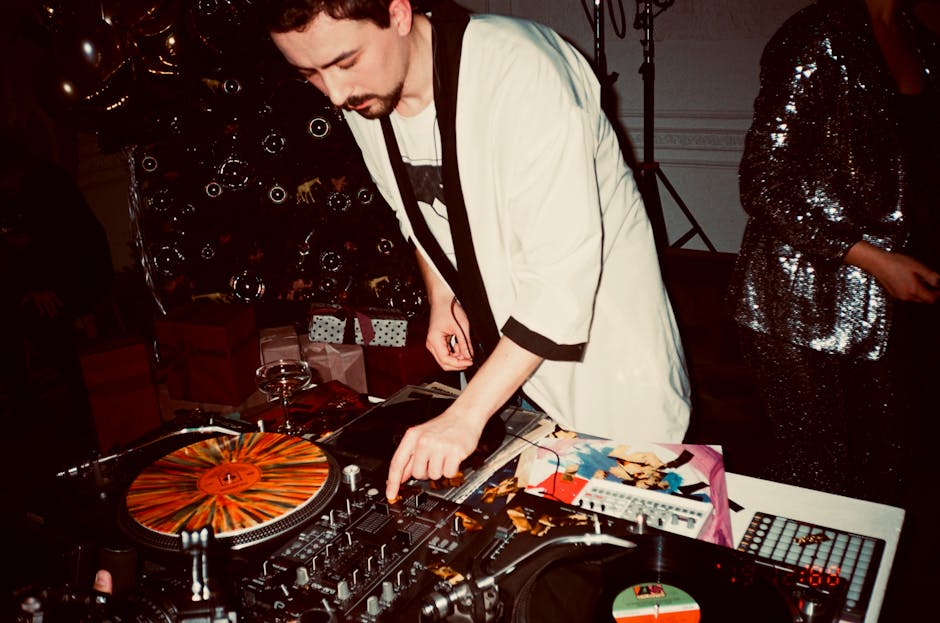The creative process of music production, while often viewed as a purely artistic endeavor, is interwoven with a complex web of ethical considerations. From the sourcing of sounds and samples to the treatment of artists and collaborators, many moral quandaries arise in this often-hidden world. This article delves into the multifaceted ethical questions surrounding music production, exploring the responsibilities of producers, artists, and labels alike.
A crucial ethical domain in music production revolves around intellectual property. Sampling, a cornerstone of many genres, can raise significant issues. Using pre-existing material without proper licensing or attribution can constitute copyright infringement, leading to legal battles and financial ramifications. The digital age has made accessing such material easier, but it has also heightened the importance of understanding and adhering to copyright laws. Producers must meticulously research the provenance of samples, ensuring they are licensed appropriately and properly crediting the original artists. This includes not only avoiding blatant plagiarism but also recognizing the nuances of fair use, a complex legal doctrine that permits limited use of copyrighted material without explicit permission. Transparency and a conscious approach to intellectual property rights are paramount.
Beyond copyright, ethical dilemmas emerge concerning artistic integrity. While producers play a vital role in shaping a final product, maintaining artistic authenticity is a critical consideration. The use of digital audio workstations (DAWs), while empowering, presents a potential for over-manipulation. The line between enhancing a song and fundamentally altering it can be blurry, and producers need to be sensitive to the potential for compromising an artist’s creative vision. Is the final product still a faithful representation of the artist’s original intention? Producers should strive for a collaborative and communicative approach, fostering open dialogue with artists about creative direction and sonic choices. Respecting the artist’s creative input and ensuring their voice is heard throughout the process is crucial.
Another pivotal area involves the treatment of performers and collaborators. Music production often involves a chain of individuals, each contributing to the final product. Fair compensation and equitable distribution of revenue need careful consideration. Producers and labels bear a responsibility to ensure that all parties involved in the production process receive fair remuneration for their work. This encompasses not only musicians and singers but also engineers, programmers, and other crucial collaborators. Transparency in contracts and consistent communication regarding compensation are essential to prevent exploitation. Additionally, fostering an environment of mutual respect and clear communication can mitigate the potential for conflicts and disagreements.
Furthermore, social responsibilities play a vital role in music production. Music’s ability to influence and shape cultural narratives presents opportunities but also potential pitfalls. Promoting ethical content and avoiding potentially harmful messages is paramount. Producers and artists should be mindful of the potential impact their work has on listeners and society at large. The increasing prevalence of social media creates a dynamic space for audience feedback and discourse, and producers should remain cognizant of the broader societal context in which their music operates.
Moreover, the utilization of technology raises ethical questions. The increasing sophistication of artificial intelligence (AI) in music production presents both exciting possibilities and potential pitfalls. AI-generated music can potentially offer new avenues for creativity, but concerns about the originality and authenticity of such creations exist. The issue of artistic ownership and copyright in AI-generated works is still evolving and demands careful consideration. How should we delineate the contributions of AI and human musicians in the creation process, and how will this impact future notions of authorship? A thoughtful, forward-looking approach is necessary to navigate these complexities.
Another significant aspect involves the promotion and marketing of music. The music industry is inherently commercial, but ethical considerations are integral to responsible marketing. Avoiding misleading advertisements, inaccurate portrayals, or exploitation of consumers are essential. Transparency in promotional strategies is crucial. Promoting realistic expectations regarding the product and the artist avoids disappointment and potentially harmful perceptions. Honest communication and fair representation are vital to maintaining a level of trust with the listening public.
Examining the financial implications also sheds light on ethical considerations. The complexities of music contracts and distribution models can sometimes lead to imbalances of power. Smaller artists may lack the negotiating leverage to secure fair deals, and producers or labels might be tempted to prioritize profit over artistic integrity. Ensuring that contracts are clear, equitable, and protect the interests of all parties involved is imperative. Promoting alternative distribution models that offer better avenues for artist compensation is necessary.
In conclusion, navigating the ethical terrain of music production demands a nuanced approach that considers multiple stakeholders and diverse perspectives. From intellectual property to artistic integrity, social responsibility, and financial equity, ethical considerations permeate every stage of the process. Producers, artists, and labels must consistently examine their practices, prioritize transparency, and strive for fair and equitable outcomes. This requires a commitment to understanding the multifaceted ethical considerations at play and a consistent effort to create a more just and responsible music industry. By acknowledging and addressing these ethical issues, the music industry can ensure its longevity and foster a more vibrant and fulfilling creative experience for all involved.
